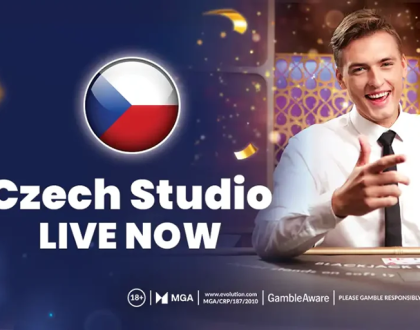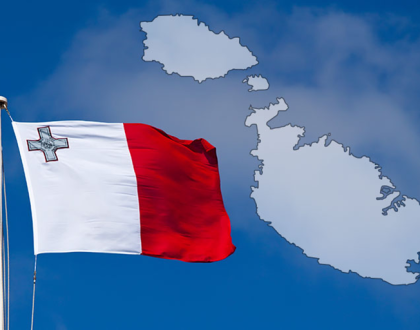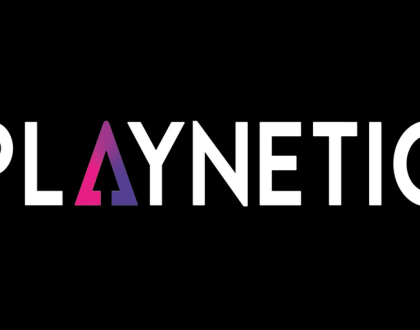Online Casino Licensing in the Netherlands

You need to navigate a complex landscape if you're considering entering the online casino market in the Netherlands. With a regulatory framework established by the Remote Gambling Act, the country imposes stringent licensing requirements that can be challenging for operators. This blog post examines into the important licensing hurdles and compliance measures that online casinos must be aware of to thrive in the Dutch gambling market. Understanding these key factors will provide valuable insights and necessary preparations for successful operations in this competitive arena.
Overview of Online Gambling Regulations in the Netherlands
Your understanding of the online gambling landscape in the Netherlands is crucial for compliance and success. The country has implemented a comprehensive regulatory framework that governs both land-based and online gambling, focusing on player protection, market integrity, and responsible gaming practices. Since the introduction of the Remote Gambling Act, several key regulations and licensing authorities have come into play, ensuring that operations within the Netherlands align with national standards.
The Remote Gambling Act
The Remote Gambling Act, enacted in 2021, provides the legal basis for online gambling operations and aims to create a safe and accountable environment for both players and operators. It establishes clear guidelines for licensing, advertising, and player protection measures, while also allowing the Dutch government to effectively monitor the online gambling market.
Licensing Authorities
Gambling in the Netherlands is regulated by the Kansspelautoriteit (KSA), the Dutch Gambling Authority, which is responsible for issuing licenses and enforcing compliance with the Remote Gambling Act.
Regulations set forth by the KSA include stringent requirements for online casinos, including financial stability, player protection policies, and the implementation of responsible gaming measures. The KSA also conducts regular audits and inspections to ensure that operators comply with the law and maintain high standards. This allows for a safer gambling experience while fostering a competitive marketplace that aligns with the Netherlands' national values and regulations.
Types of Licenses Available
You need to understand the types of licenses that online casinos can apply for in the Netherlands. Below is a breakdown of the main categories:
| License Type | Description |
| Remote Gambling License | For online casinos offering games to players in the Netherlands. |
| Land-Based Casino License | For operators with physical casino establishments. |
| Sports Betting License | Specifically for operators offering betting on sporting events. |
| Software Provider License | For companies developing and supplying gaming software. |
| Third-Party Service Provider License | For businesses providing services to licensed operators. |
Any operator interested in entering the market must acquire the appropriate licenses to ensure compliance.
Operational Licenses
The operational licenses are crucial for online casinos, as they govern the legality of offering gambling services within the Netherlands. These licenses ensure that operators uphold strict standards of fairness, security, and transparency for players, thus safeguarding the integrity of the industry. Without these licenses, casinos cannot legally operate and risk severe penalties.
Software Provider Licenses
Available to developers and suppliers, software provider licenses are imperative for businesses that create online gaming solutions. These licenses facilitate collaboration between game developers and online casinos.
It is important for software providers to acquire this license to ensure that the games offered are compliant with the Netherlands' regulatory framework. By obtaining a software provider license, developers can assure operators of their commitment to safety and integrity, which is vital in building trust with both operators and players in this competitive market.
Application Process for Online Casinos
Clearly, the application process for online casinos in the Netherlands involves several critical steps to ensure compliance with local regulations. Prospective operators must submit a comprehensive application to the Dutch Gaming Authority, detailing their business model, financial stability, and responsible gaming measures. Navigating this process effectively is vital for securing a license and operating legally within the jurisdiction.
Documentation Requirements
Requirements for the application process entail submitting a range of documents that reflect the casino's financial practices, regulatory compliance, and operational integrity. This includes a detailed business plan, proof of funds, a thorough risk assessment, and evidence of responsible gaming initiatives. These documents are important for the Gaming Authority to evaluate the operator's suitability for a license.
Timeline for Approval
Casinos seeking a license should anticipate a timeline for approval that can vary significantly based on the completeness of their application and the current workload of the Dutch Gaming Authority. Delays may occur, especially if additional information is required. It is important for operators to prepare thoroughly to expedite the review process and avoid potential setbacks.
Documentation provided in the application plays a crucial role in the timeline for approval. A well-prepared and comprehensive submission can lead to a quicker review process, while incomplete or unclear documentation may prolong the timeline significantly. Operators are encouraged to engage legal experts familiar with Dutch gaming laws to ensure that all requirements are met adequately before submission, enhancing their chances of timely approval.
Compliance Requirements for Licensed Operators
To successfully operate within the Netherlands, online casinos must adhere to strict compliance requirements set forth by the Kansspelautoriteit (KSA). These requirements encompass various aspects, including financial stability, responsible gaming practices, and data security protocols. Licensed operators must also ensure transparency in their operations and maintain meticulous records to prevent unethical activities, such as money laundering. Failure to meet these compliance standards may result in severe penalties or the revocation of their operating license.
Advertising Standards
Compliance with advertising standards is crucial for licensed online casinos in the Netherlands. All promotional activities must be transparent and truthful, clearly communicating the terms and conditions associated with bonuses and promotions. Additionally, advertisements should not target vulnerable populations, including minors or individuals experiencing gambling-related harm.
Player Protection Measures
Operators must implement comprehensive player protection measures to safeguard their customers. These measures include establishing self-exclusion programs, providing responsible gaming tools, and implementing age verification systems to ensure that only eligible individuals can access their services.
Measures such as these are vital in creating a responsible gaming environment. Operators are encouraged to foster awareness about gambling addiction and provide resources for players seeking help. Furthermore, continuous monitoring and reporting of player activity allow casinos to identify potential harm and intervene proactively. By prioritizing player protection, operators not only comply with legal requirements but also build trust with their clientele.
Challenges and Obstacles in the Licensing Process
After navigating the complex landscape of online gambling regulations, operators seeking licenses in the Netherlands face numerous challenges and obstacles. From unclear guidelines to intense scrutiny from regulatory bodies, understanding the nuances and requirements is necessary for a successful application. These challenges can significantly impact timelines and overall market readiness for new entrants.
Regulatory Delays
Delays in processing applications are a common hurdle, often stemming from extended reviews and a shortage of regulatory staff. Such delays lead to uncertainties in market entry and can hinder an operator's ability to launch services promptly.
Financial Barriers
Barriers to obtaining a license often include steep financial requirements, including application fees and proof of sufficient financial reserves. These financial hurdles necessitate careful planning and budgeting to ensure compliance with the regulatory framework.
Challenges in the financial realm extend beyond initial fees. Operators must also prepare for ongoing costs related to compliance, taxes, and potential penalties. The substantial financial investment required not only affects cash flow but also creates barriers for smaller companies attempting to enter the market. As a result, financial planning is crucial for operators looking to establish a sustainable presence in the competitive online casino landscape of the Netherlands.
Impact of Licensing on the Online Gambling Market
Once again, the licensing framework in the Netherlands is set to reshape the online gambling landscape. By establishing clear regulations and requirements, the Dutch government seeks to promote responsible gambling while providing a secure environment for players. This move is intended to reduce illegal gambling activities and ensure consumer safety, resulting in a more stable and regulated online market that can enhance trust among players and operators alike.
Market Competition
On the surface, the licensing requirements might seem restrictive, yet they create a competitive environment where only the most compliant and reputable operators can thrive. As new entrants join the market, competition is likely to intensify, leading to innovative offerings and better customer service. This elevation in standards can ultimately benefit players who will have access to a greater variety of high-quality games and promotions.
Consumer Confidence
Licensing plays a crucial role in fostering consumer confidence in the online gambling space. By ensuring that all operators adhere to strict laws and guidelines, players can feel secure in their choice of platforms. This not only encourages new players to engage with licensed casinos but also helps retain existing players who value transparency and accountability.
Gambling operators that are licensed in the Netherlands must adhere to a comprehensive set of regulations designed to protect consumers. This includes measures for data security, fair play, and responsible gambling practices. As a result, players are more likely to trust licensed operators, leading to increased engagement and loyalty. Enhanced consumer confidence translates to a healthier gambling ecosystem, where players can enjoy their experience without the fear of exploitation or fraudulent activities.
To wrap up
To wrap up, online casinos seeking to operate in the Netherlands must navigate a complex regulatory landscape marked by stringent licensing requirements and a commitment to responsible gaming. Understanding the nuances of the Dutch gambling law, including player protection measures and advertising restrictions, is crucial for compliance. By adhering to these guidelines and ensuring transparency, operators can not only secure their licenses but also foster a trustworthy environment that promotes player safety and enhances their reputation in this competitive market.
FAQs
What is the Remote Gambling Act?
The Remote Gambling Act, enacted in 2021, provides the legal framework for online gambling in the Netherlands. It outlines licensing requirements, advertising standards, and player protection measures.
Who is responsible for regulating online gambling in the Netherlands?
The Kansspelautoriteit (KSA), or Dutch Gambling Authority, is responsible for issuing licenses and enforcing compliance with the Remote Gambling Act.
What types of licenses can online casinos apply for in the Netherlands?
Online casinos can apply for a Remote Gambling License, Land-Based Casino License, Sports Betting License, Software Provider License, or Third-Party Service Provider License, depending on their operations.
What are the main compliance requirements for licensed online casinos?
Licensed online casinos must adhere to requirements related to financial stability, responsible gaming practices, data security, and transparency in operations.
What challenges might operators face when applying for a license?
Operators may encounter challenges such as regulatory delays, high financial barriers, and stringent compliance requirements that can impact their market entry and operations.
Recommended Posts

Evolution’s Live Casino Studio Opens in Prague
October 5, 2024

Why iGaming Brands Choose Malta
October 4, 2024

Playnetic Gains MGA Approval for Expansion
October 3, 2024



